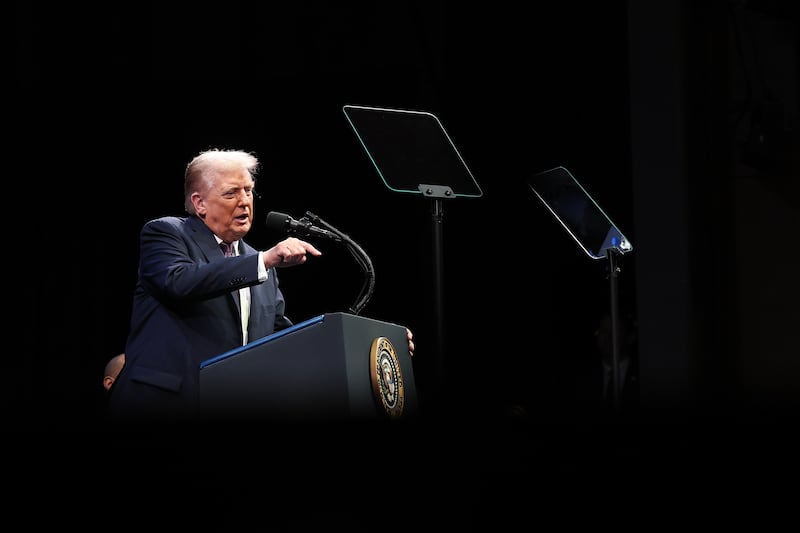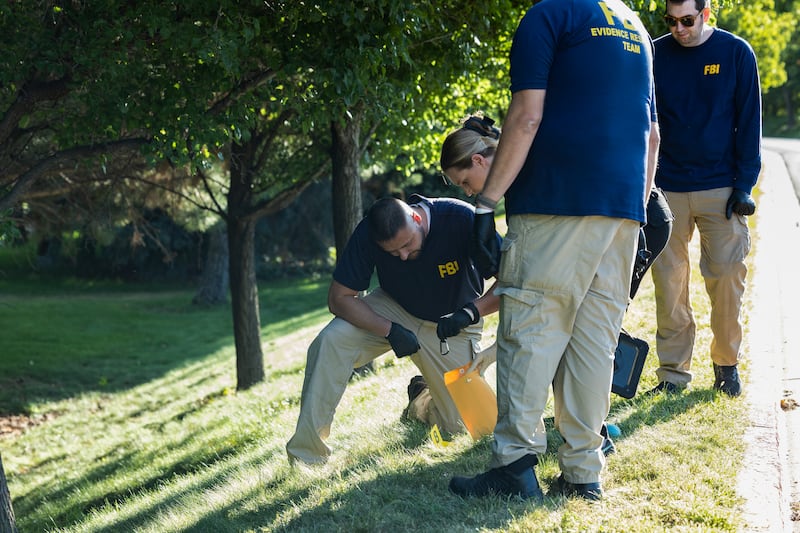The murder of Charlie Kirk is repugnant. It is a tragedy for his family and friends, and our American society.
But this tragedy is now being compounded by the reactions it has generated. From our leaders, from the media, from the right and from the left, response after response has made future violence more likely—if not inevitable.
We live in a nation riven and roiled by a culture of violence. It is pernicious and pervasive, touching each of us, our daily lives, our politics, our public discourse and our national identity.

And in the hours immediately after following the Kirk’s killing during a Turning Point USA event at Utah Valley University in Orem, Utah, it became clear it would signal another dark turn, one in which we spiral further into brutality, loss and suffering akin to past such painful eras in our history like the political violence and conflict of the late 1960s.
Perhaps it will be worse than that.
President Trump was among the first to respond to the shooting. He did so in exactly the wrong and most dangerous way.
This is unsurprising because he is both a symptom and an author of America’s current bloody and divisive mindset. His words and actions regularly celebrate, drive and even institutionalize cruelty and conflict.
“For years, those on the radical left have compared wonderful Americans like Charlie to Nazis and the worst mass murders and criminals. This kind of rhetoric is directly responsible for the terrorism we’re seeing in our country today, and it must stop right now,” Trump asserted. He then promised find “each and every one of those who contributed to this atrocity and to other political violence, including the organizations that fund and support it, as well as those who go after our judges, law enforcement officials, and everyone who brings order to our country.”

He framed the remarks by citing as examples attacks like those on himself and GOP Rep. Steve Scalise, who was in 2017 shot as Republicans practiced for that year’s Congressional Baseball Game.. But he neglected to note attacks against Democrats including, just months ago, the murders of Minnesota legislator Melissa Hortman, her husband and their dog. (Nor did he mention the school shooting that occurred also on Wednesday in Colorado.)
We do not know yet who committed the crime or why, though some reports, released Thursday morning, claimed that the shooter’s ammunition was engraved with “transgender and anti-fascist ideology.” But that did not stop Trump from jumping to conclusions and sending a message to his supporters that they were being targeted.
His words made it clear that he intends to use this incident to justify targeting not just the individual or individuals behind it but to expand further his on-going campaign to use every mechanism of government available to him to go after his critics and political opponents.

Further, referring to Kirk as a martyr was clearly intended both to elevate him from his role as one of the right wing’s favored provocateurs and to message to his MAGA base implying that retribution would be morally justified. It was a call that was heard and immediately responded to. Leaders from across the GOP joined Trump in assigning blame and exacerbating raising the temperature of unrest in the country.
The assignment of blame for the event to the stance or language of “the radical left” was also a stark irony given the fact that the president and the right have literally unleashed armies against American cities and incited their supporters to violence—whether on January 6, 2021 or when Trump has in the past called out to his “second amendment people.”
It did not and will not help matters that we live in a moment where social media makes it possible for almost everyone with an opinion to weigh in, often anonymously, and to lash out with threats of their own. (Or not so anonymously, as when Elon Musk maligned the left as “celebrating cold-blooded murder.”) Nor were matters helped by media coverage that almost immediately sought to rewrite Kirk’s history and portray him as some kind of champion of free speech in America. “His voice might be gone, but millions of fans will make sure his message is never silenced,” concluded a piece from The Washington Post’s editorial board; an op-ed in the New York Times suggested that Kirk was somehow “practicing politics the right way.”
Nothing, of course, could be further from the truth. Kirk was an extremist who once cheered on the lunatic who attacked Nancy Pelosi’s husband, said that the deaths of a few citizens were small price to pay for “our” second amendment “rights,” fanned the flames of hatred against immigrants and the LGBTQ community and once even condemned the very idea of empathy as a woke stain on our public discourse.

It is possible to condemn Kirk’s murder and to report accurately who he was. Indeed, it should be obligatory. Just as if we oppose violence we should get to its roots and fairly criticize its authors regardless of political orientation—even if they end up becoming its victims. Just as we should push back vigorously against those, like the president of the United States, who seek to capitalize on one brutal crime to justify their own assaults on our people, rights and values.
We live in a dangerous moment. It is made much more precarious by the fact that so many of those in positions of influence and power either see that as an opportunity or, alternatively, shy away from the kind of honesty and moral leadership we so urgently require.
The post Opinion: How Charlie Kirk’s Death Exposes MAGA’s Naked Cynicism appeared first on The Daily Beast.




